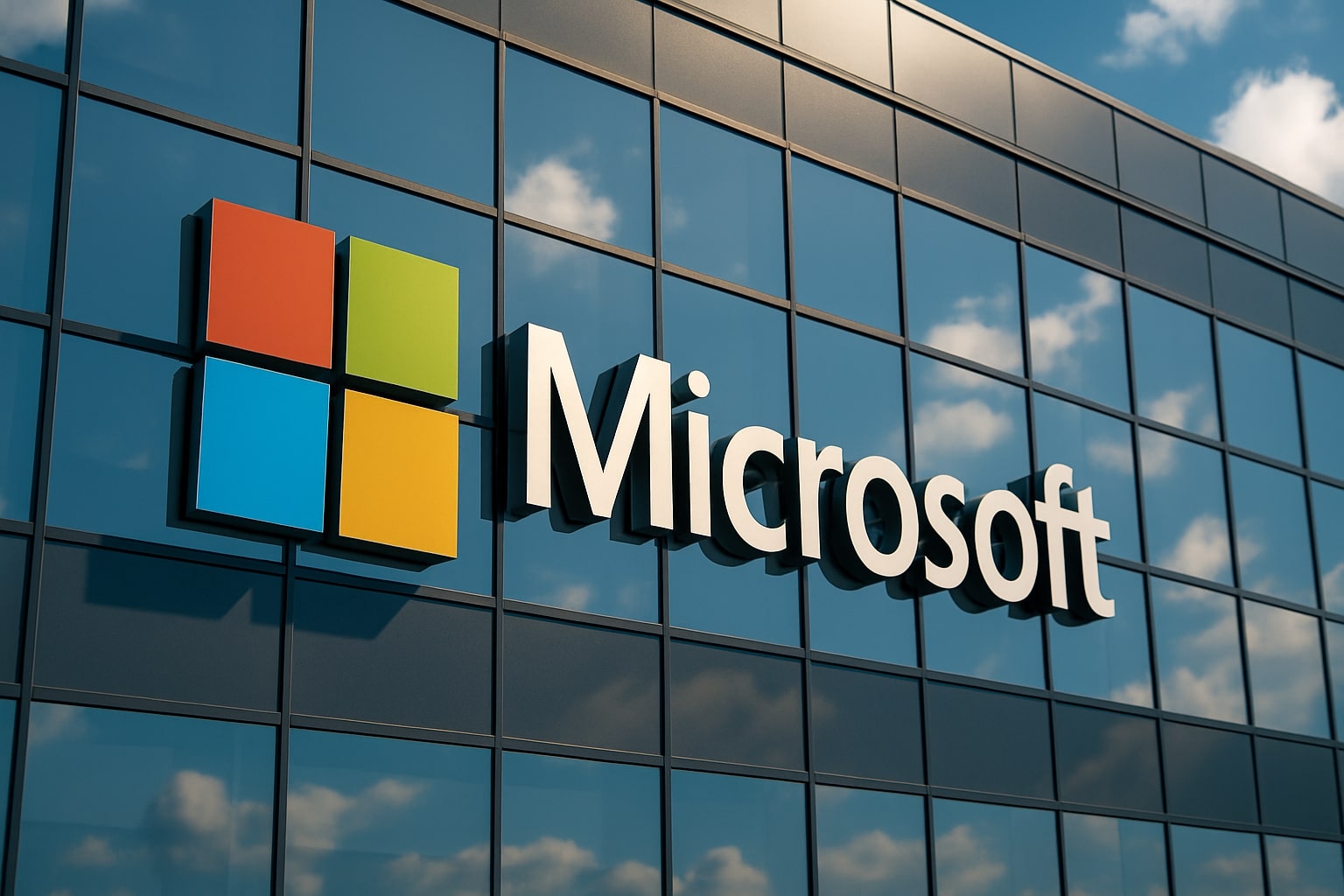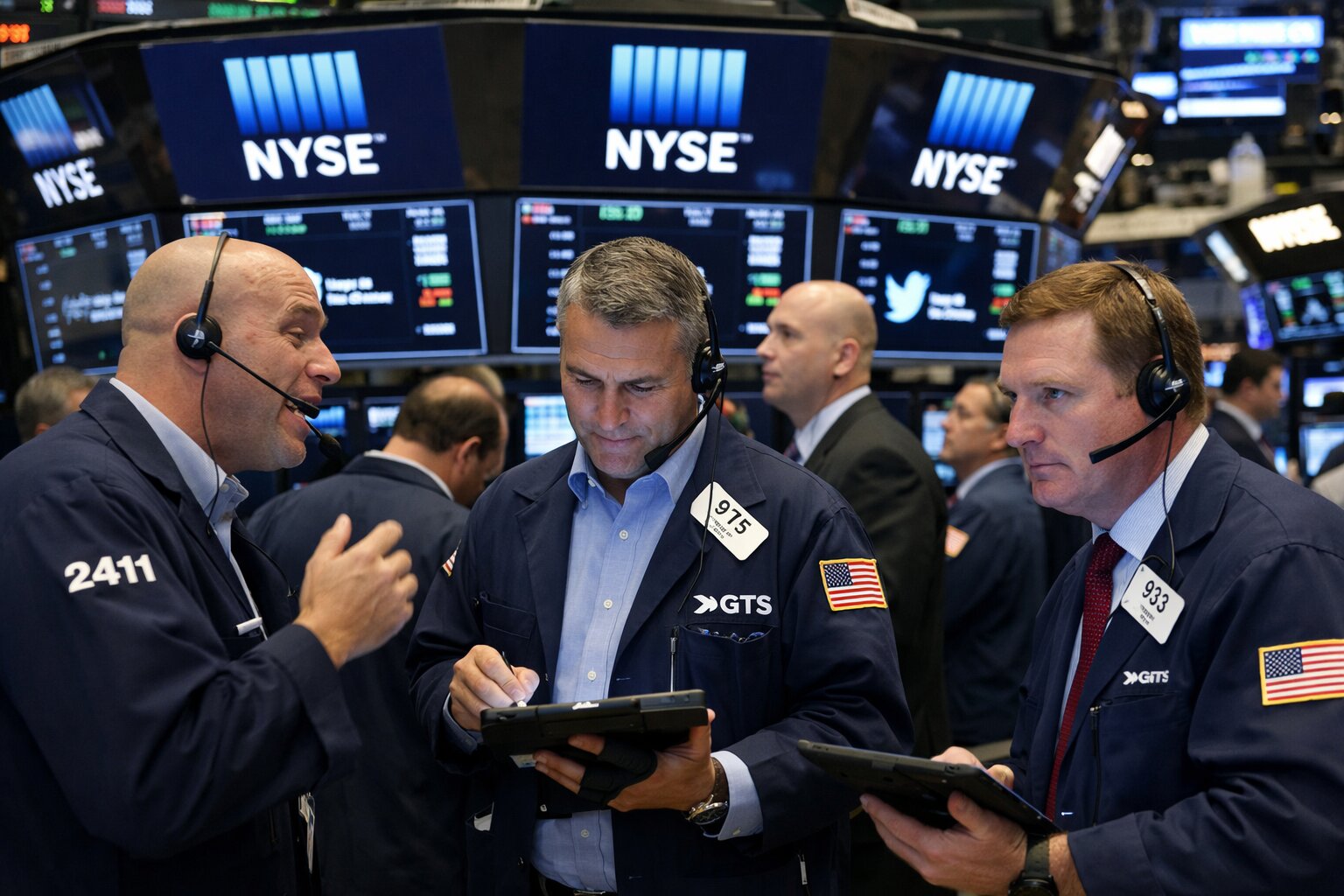
Microsoft Stock $508: AI Expansion, $7.3B Data Center Build, and Wall Street Targets
With $76.4B revenue, $27B profit, 33% Azure growth, and $20B quarterly capex, Microsoft eyes $626 median target as AI and cloud demand accelerate | That's TradingNEWS
Microsoft (NASDAQ:MSFT) Stock at $508: AI Expansion, Data Centers, and Valuation in Focus
Earnings Momentum and Consistent Outperformance
Microsoft (NASDAQ:MSFT) is holding around $508 per share, not far from its 52-week high of $555.45, valuing the company at $3.77 trillion. In its most recent quarter, Microsoft delivered $76.44 billion in revenue, up 13% year-over-year, and earnings per share of $3.65, handily beating the $3.35 consensus. Net income surged 23.6% to $27 billion, and gross profit hit $49.8 billion, with margins steady at 68%. The stock has now beaten analyst EPS expectations in 15 of the last 16 quarters, cementing Wall Street’s confidence.
AI and Cloud Revenue Surging Higher
Azure continues to be Microsoft’s growth engine, posting 33% year-over-year growth. Total Microsoft Cloud revenue reached $42.4 billion last quarter, up 20%, while the annual run-rate for cloud services climbed past $168 billion. Microsoft 365 Copilot is now deployed by 70% of Fortune 500 firms, and GitHub Copilot adoption has reached 20 million developers. Meanwhile, Microsoft Fabric, its data analytics platform, grew 55% year-over-year, becoming its fastest-scaling product in history.
Aggressive Capex and AI Infrastructure Expansion
To meet AI demand, Microsoft is spending over $20 billion in quarterly capex, with a massive push into data centers. The new Fairwater facility in Wisconsin — part of a $7.3 billion investment — will host hundreds of thousands of Nvidia GB200 GPUs and deliver up to 10x the performance of today’s fastest supercomputers. A second Wisconsin site will add another $4 billion in spending. Globally, Microsoft has committed $400 million to Swiss expansion, $15.5 billion in the UK through 2028, and a $19.4 billion AI capacity deal with Nebius Group. These bets are capital-intensive but cement Microsoft’s role as the backbone of global AI infrastructure.
Read More
-
MicroStrategy Stock Price Forecast: MSTR Jumps Back Above $130 on 713K BTC and $2.25B Cash
13.02.2026 · TradingNEWS ArchiveStocks
-
XRP Price Forecast: Can XRP-USD Defend $1.35 Support After a 30% Slide?
13.02.2026 · TradingNEWS ArchiveCrypto
-
Oil Price Forecast: Oil Slide as Surplus Fears Replace War Premium
13.02.2026 · TradingNEWS ArchiveCommodities
-
Stock Market Today: AI Fears Hit Nasdaq as S&P 500 and Dow Struggle While AMAT and Rivian Rip Higher
13.02.2026 · TradingNEWS ArchiveMarkets
-
GBP/USD Price Forecast - Pound Holds 1.36 as Softer US CPI Revives June Fed Cut Expectations
13.02.2026 · TradingNEWS ArchiveForex
Valuation Metrics and Balance Sheet Strength
Microsoft trades at 37.31x trailing earnings and 33x forward P/E, elevated compared to Oracle’s 24x but supported by stronger growth. Its PEG ratio of 2.23 signals a premium growth multiple. The balance sheet is solid, with $94.56 billion in cash versus $112.18 billion in debt, a manageable 32.66% debt-to-equity ratio. Levered free cash flow stands at $61.07 billion, while operating cash flow hit $136.16 billion over the last twelve months. Dividend yield is 0.71%, backed by a conservative 23.75% payout ratio.
Workforce Challenges and Cultural Risks
Despite its financial strength, Microsoft is navigating internal strain. CEO Satya Nadella recently acknowledged the need to rebuild employee trust after laying off 9,000 workers in July and implementing a return-to-office mandate. Workforce morale remains a risk factor in an environment where top AI talent is in high demand, and cultural issues could impact retention as the company scales its AI investments.
Institutional and Insider Ownership
Institutional investors dominate Microsoft’s shareholder base, with Vanguard, BlackRock, and State Street collectively holding 1.57 billion shares or nearly 75% of float. Insider ownership is just 0.07%, but investors can monitor insider activity via Microsoft’s transaction profile. High institutional backing underscores confidence in long-term growth, but also limits near-term volatility.
Cybersecurity, Regulation, and Risk Management
Microsoft’s Digital Crimes Unit recently shut down the Raccoon365 phishing network, which had compromised 5,000 Microsoft credentials across 94 countries. While this highlights the company’s strength in cybersecurity, it also reflects the constant reputational risks tied to its global platforms. At the same time, Microsoft faces tariff uncertainty on server hardware, which could pressure margins despite a pause in U.S.-China trade escalation.
Stock Price Outlook and Analyst Targets
Analysts remain overwhelmingly bullish, with 33 Buy ratings and just one Hold. Price targets span from $550 to $700, with a median of $626.88, suggesting 22.6% upside from current levels. More conservative forecasts, such as $563.64 by year-end, still imply a 10% gain. With Q4 revenue guidance of $73.7 billion, investors are watching whether Azure can maintain 30%+ growth while balancing the strain of $20 billion quarterly capex.
Verdict on Microsoft (NASDAQ:MSFT)
At $508 per share, Microsoft remains one of the strongest plays on the AI supercycle. With unmatched cloud scale, over $61 billion in free cash flow, and aggressive infrastructure expansion, the company has both resilience and growth visibility. Risks include rising capital intensity, supply chain exposure, and cultural headwinds, but the balance of power lies firmly with Microsoft’s execution strength. Based on current data, MSFT is a Buy, with realistic upside toward $563–$626 in the next 12 months, and potential extension toward $675–$700 if AI adoption accelerates further.
For updated performance and live monitoring, see Microsoft’s real-time stock chart.


















